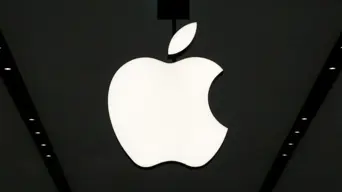Apple loosens grip on iPhone apps - with a catch
Apple takes a cut of as much as 30% on all financial transactions in its app shop, prompting complaints about an unfair "tax" for companies.

FILE: The trademark of Apple Inc. is seen in Shinjuku Ward, Tokyo on 15 June 2022. Picture: AFP
SAN FRANCISCO, United States - After a years-long legal battle, Apple says it will begin allowing iPhone app developers to use alternative payment systems - but they will still have to pay fees and meet various conditions.
The California company laid out its plan to relax control of apps on iPhones and iPads in a court filing late Tuesday related to its lengthy legal battle with Epic Games, maker of the highly popular Fortnite.
The move came after the US Supreme Court on Tuesday declined to hear appeals by Apple and Epic of a lower court ruling in which the iPhone maker was seen as the victor.
Epic in 2020 launched a case aiming to break Apple's grip on the App Store, accusing the tech giant of operating a monopoly in its shop for digital services.
Apple takes a cut of as much as 30% on all financial transactions in its app shop, prompting complaints about an unfair "tax" for companies.
A federal court in San Francisco overwhelmingly rejected the lawsuit, offering only a concession that apps could indicate other ways of paying for services outside of Apple's ecosystem.
The high court announced Tuesday it would not hear appeals by either Apple or Epic, effectively putting an end to the legal saga.
With its appeal off the table, Apple filed a plan to abide by the lower court's ruling that it let developers use outside payment systems for apps downloaded on the App Store, the lone gateway onto iPhones and iPads.
Apple said it will permit developers to include buttons or links in apps that direct users to alternative purchasing venues such as websites.
However, it told the court it would still collect a fee of 27% on transactions made using payment systems other than its own.
In a post on X, formerly Twitter, Epic chief executive Tim Sweeney said the company will contest what he called Apple's planned "bad-faith compliance" with the court ruling.
Sweeney argued that the fee "kills price competition."
Apple also said in its filing that it will require developers to qualify for "link entitlement" privileges that can be revoked if they don't abide by its rules.
The iPhone maker contended the requirement is a way to reduce risks posed by external payment links.